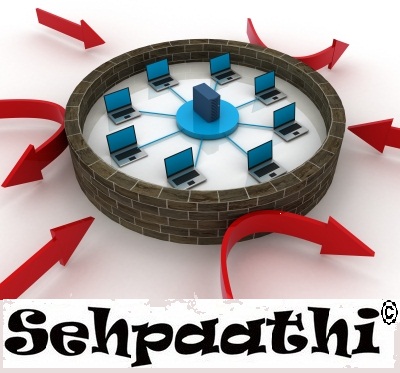COMPUTER NETWORK SECURITY
 Computer Network security is a specialized field in computer networking that involves securing a computer network infrastructure. Network security is typically handled by a network administrator or system administrator who implements the security policy, network software and hardware needed to protect a network and the resources accessed through the network from unauthorized access and also ensure that employees have adequate access to the network and resources to work.
Computer Network security is a specialized field in computer networking that involves securing a computer network infrastructure. Network security is typically handled by a network administrator or system administrator who implements the security policy, network software and hardware needed to protect a network and the resources accessed through the network from unauthorized access and also ensure that employees have adequate access to the network and resources to work.
A network security system typically relies on layers of protection and consists of multiple components including networking monitoring and security software in addition to hardware and appliances. All components work together to increase the overall security of the computer network.
Many network security threats today are spread over the Internet. The most common include:
- Viruses, worms, and Trojan horses
- Spyware and adware
- Zero-day attacks, also called zero-hour attacks
- Hacker attacks
- Denial of service attacks
- Data interception and theft
- Identity theft
Issues in Network Security:
- Authentication: Process of verifying identity of a user
- Integrity: Data that arrives is the same as that is sent
- Confidentiality: Sensitive information should not be visible to eavesdropper – use encryption
- Non – Repudiation: Assurance that any transaction that takes place can subsequently be proved to have taken place
- Authorization: Assigning access rights to users
How Does Network Security Work?
Network security is accomplished through hardware and software. The software must be constantly updated and managed to protect you from emerging threats.
A network security system usually consists of many components. Ideally, all components work together, which minimizes maintenance and improves security.
Network security components often include:
- Anti-virus and anti-spyware
- Firewall, to block unauthorized access to your network
- Intrusion prevention systems (IPS), to identify fast-spreading threats, such as zero-day or zero-hour attacks
- Virtual Private Networks (VPNs), to provide secure remote access
























